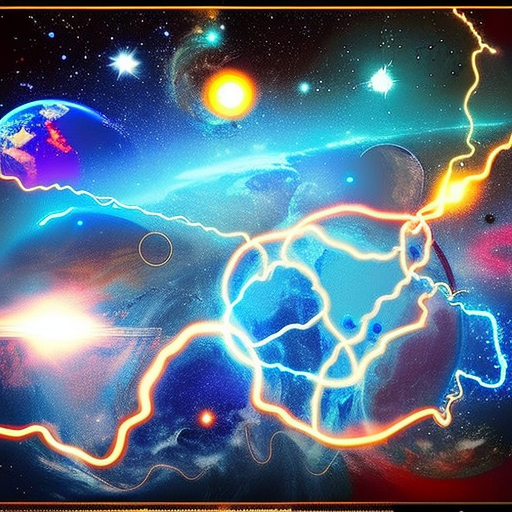The Gods Themselves: Summary
In “The Gods Themselves” by Isaac Asimov, a groundbreaking science fiction novel, humanity discovers a way to harness a new form of energy from a parallel universe, leading to unforeseen consequences and a battle for survival. The story is divided into three parts, each exploring different aspects of the discovery and its implications. Through complex characters and intricate plotlines, Asimov delves into themes of scientific ethics, the nature of power, and the potential consequences of our actions.
Part 1: Against Stupidity
The first part of the novel introduces us to a future Earth where scientists have discovered a way to tap into a parallel universe, known as the para-Universe, to obtain an unlimited source of energy. However, a physicist named Hallam discovers that this process will ultimately lead to the destruction of the sun. Despite his efforts to warn others, he is dismissed and ridiculed by his colleagues, who are more interested in the immediate benefits of the new energy source.
Part 2: The Gods Themselves
The second part takes place in the para-Universe, where beings known as the “Soft Ones” communicate with humans through a process called “electron pumping.” These beings, who have three genders, are desperate to exchange energy with humans in order to save their own dying universe. However, the exchange comes at a cost, as it gradually weakens the fabric of both universes.
Part 3: Contend in Vain?
In the final part, the consequences of the energy exchange become apparent as Earth’s sun begins to deteriorate. A small group of scientists, including Hallam, must race against time to find a solution to save humanity from the impending disaster. They face resistance from those who are unwilling to give up the benefits of the energy source, leading to a dramatic climax that will determine the fate of both universes.
Throughout the novel, Asimov explores the ethical implications of scientific discovery and the dangers of unchecked ambition. He raises questions about the responsibility of scientists to consider the long-term consequences of their actions and the potential for power to corrupt. Asimov’s intricate world-building and complex characters make “The Gods Themselves” a thought-provoking exploration of humanity’s relationship with science and the universe.
Key takeaways from “The Gods Themselves” include:
- The pursuit of scientific progress should always be accompanied by careful consideration of the potential consequences.
- Power can corrupt even the most well-intentioned individuals.
- Collaboration and open-mindedness are crucial in the face of complex challenges.
Asimov’s “The Gods Themselves” offers a cautionary tale about the dangers of unchecked scientific advancement and the importance of ethical decision-making. It reminds us that our actions have consequences, and that we must always strive to balance progress with responsibility.
“The effort to understand the universe is one of the very few things that lifts human life a little above the level of farce and gives it some of the grace of tragedy.” – Isaac Asimov












